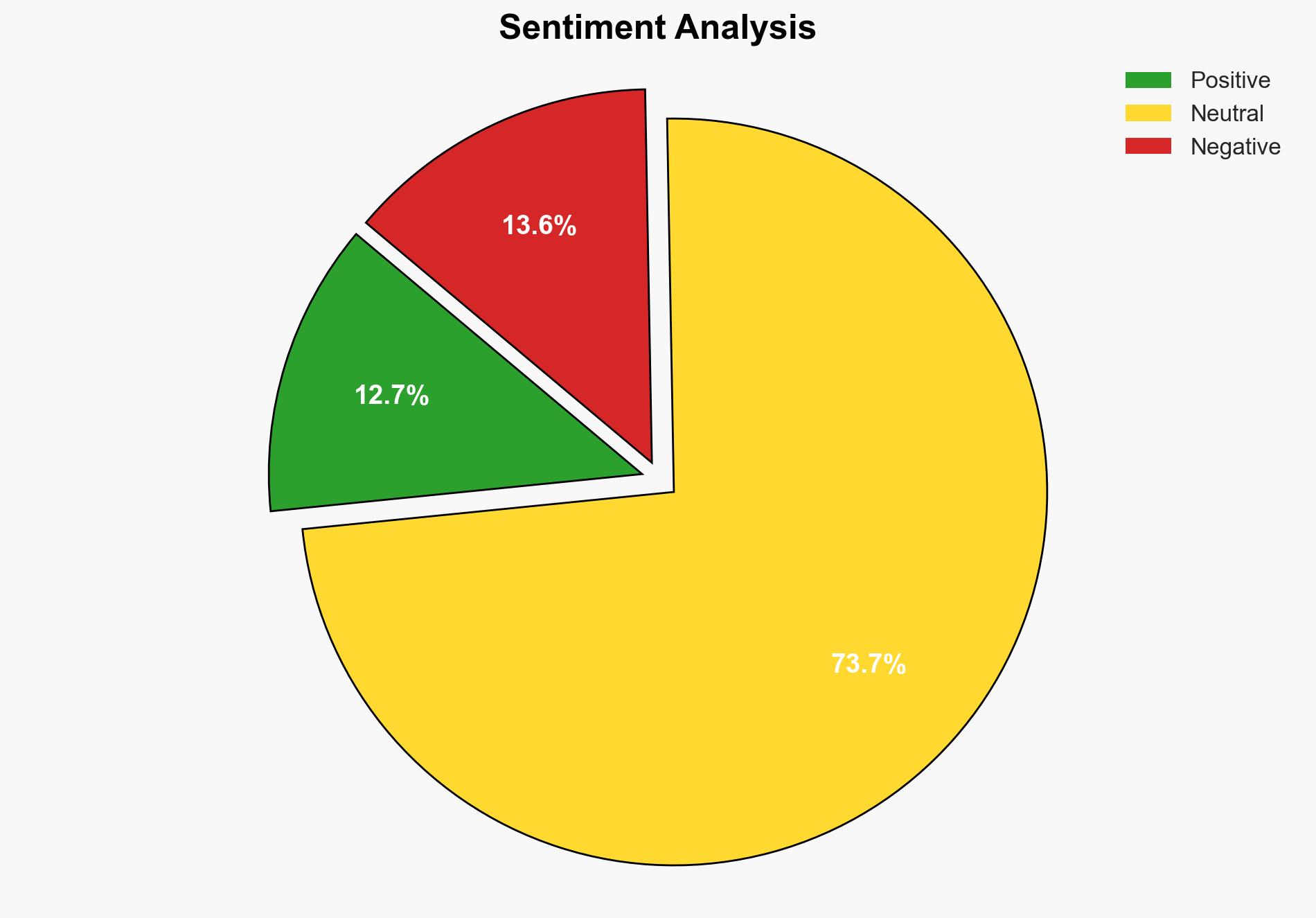UN humanitarian agencies scramble in wake of US funding freeze – ABC News
Published on: 2025-03-08
Intelligence Report: UN Humanitarian Agencies Scramble in Wake of US Funding Freeze – ABC News
1. BLUF (Bottom Line Up Front)
The US funding freeze has severely impacted UN humanitarian agencies, leading to cutbacks in critical services across multiple regions, including Afghanistan, Sudan, and Ukraine. This decision has resulted in significant operational challenges, with millions of individuals at risk of losing essential health and protection services. Immediate strategic adjustments and appeals for restored funding are underway, but the situation remains precarious.
2. Detailed Analysis
The following structured analytic techniques have been applied for this analysis:
SWOT Analysis
Strengths: Established networks and partnerships with local NGOs; historical reliance on diverse funding sources.
Weaknesses: High dependency on US funding; limited flexibility in reallocating resources.
Opportunities: Potential for increased international collaboration and alternative funding sources.
Threats: Escalating humanitarian crises due to funding shortfalls; potential for increased regional instability.
Cross-Impact Matrix
The funding freeze in the US has a cascading effect on global humanitarian efforts. In regions like the Central African Republic and South Sudan, suspended services could exacerbate existing conflicts and displacement issues, potentially influencing neighboring countries’ stability.
Scenario Generation
Best-Case Scenario: Restoration of US funding following federal court intervention, allowing resumption of services.
Worst-Case Scenario: Prolonged funding freeze leading to widespread service closures and increased humanitarian crises.
Most Likely Scenario: Partial restoration of funding with continued operational challenges and strategic realignments.
3. Implications and Strategic Risks
The funding freeze poses significant risks to regional stability and global health initiatives. The suspension of services in critical areas may lead to increased migration pressures, health crises, and security threats. Economically, the disruption of aid programs could destabilize local economies reliant on international support.
4. Recommendations and Outlook
Recommendations:
- Engage in diplomatic efforts to advocate for the restoration of US funding.
- Explore alternative funding mechanisms, including partnerships with private sector and international donors.
- Enhance operational efficiency to maximize the impact of available resources.
Outlook:
Best-Case: Funding is restored, and services resume, stabilizing affected regions.
Worst-Case: Prolonged funding issues lead to increased humanitarian crises and regional instability.
Most Likely: Partial funding restoration with ongoing challenges and strategic adjustments.
5. Key Individuals and Entities
The report mentions significant individuals and organizations, including Antonio Guterres, Matthew Saltmarsh, and Amy Pope. Key organizations affected include the UNHCR, IOM, and UNAIDS.




